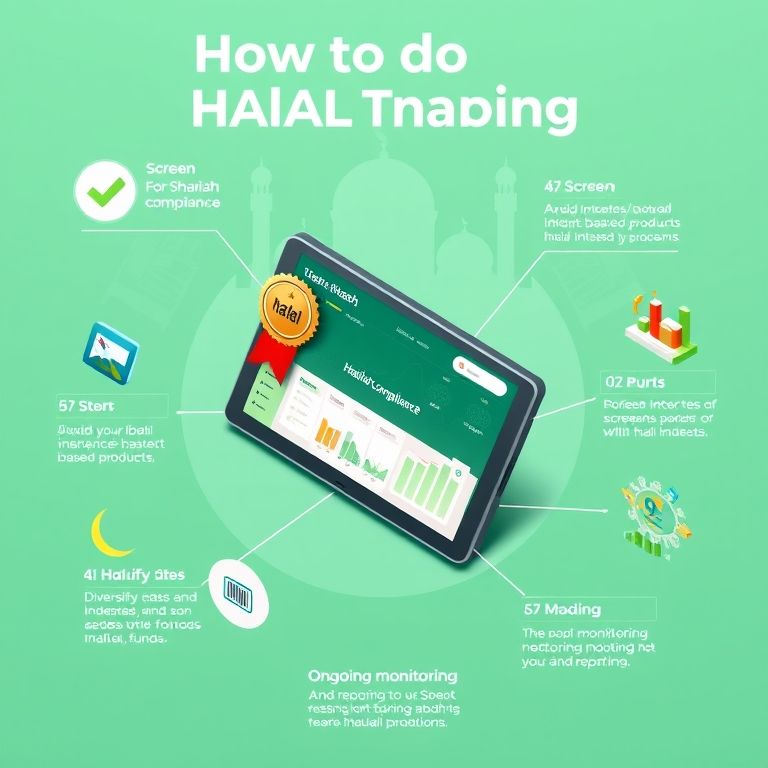how to do halal trading
How to Do Halal Trading: A Practical Guide for the Web3 Era
Introduction
If you’ve ever felt excited about the markets but held back by questions of faith, you’re not alone. I’ve talked with many traders who want to participate in forex, stocks, crypto, indices, options, and commodities while keeping halal principles. The path isn’t about a single magic account; it’s about combining sharia-aligned screening, disciplined risk, and smart tech. The good news: today’s Web3 tools, reliable risk controls, and clear halal frameworks help you trade with both conscience and confidence.

What Halal Trading Really Means
- A practical frame: avoiding riba (interest), gharar (excessive uncertainty), and maisir (gambling). It’s not about avoiding all risk; it’s about managing it transparently and within Islamic guidelines.
- A living process: you’ll screen products, choose compliant accounts, and use risk rules you can explain in a sentence to a fellow trader or a family member.
- Real-world buzzwords: “swap-free” or Islamic accounts, halal screening screens, and transparent fees. These aren’t marketing tricks; they reflect a mindset—trade with integrity, not with speculative excess.
Asset Classes Through a Halal Lens
- Forex: look for swap-free accounts to avoid overnight interest. Focus on price action and risk management rather than rollovers. A halal trader tracks spread, leverage, and margin calls, not daily interest accruals.
- Stocks: prioritize Shariah-compliant screens to exclude businesses with forbidden activities. Use portfolios built from halal indices or screened individual stocks, with clear criteria for profit-taking and risk limits.
- Crypto: opinions vary, but many communities accept certain crypto assets under careful conditions. Favor projects with real utility, strong audits, and clear governance. Keep exposure measured, use cold storage for security, and avoid yield farming that resembles interest-bearing schemes.
- Indices: exchange-traded funds or indices filtered for halal holdings can provide diversified exposure. The focus stays on price discovery and risk budgeting, not speculative bets on tiny moves.
- Commodities: real assets such as gold or other tangible commodities often fit halal principles well when traded with transparent contracts and no excessive leverage.
- Options: more delicate. They can resemble gambling if used aggressively. Use them sparingly for hedging or defined, limited strategies, with strict risk caps and clear exit rules.
Practical Risk and Leverage Strategies
- Leverage with care: keep exposure aligned with your risk tolerance and faith-based limits. A common stance is 1:2 or lower on most trades, never betting beyond your prepared downside.
- Risk controls that stick: hard stop losses, position sizing, and diversification across uncorrelated assets. Paper-trade ideas before real-money moves, then scale gradually.
- Reliability in practice: choose regulated brokers offering Islamic accounts, transparent fee structures, and robust security. Keep allocation to crypto to a portion you’re comfortable with and secure keys with hardware wallets where possible.
Tech, Safety and Charting Tools
- Advanced charting: rely on trusted platforms (think professional charting, multi-timeframe analysis, and clear risk metrics). Chart patterns and price action help you decide when faith-aligned rules align with market signals.
- Security first: enable two-factor authentication, use reputable wallet solutions, and stay updated on platform security practices. For crypto exposure, consider cold storage and regular audits.
- Analytics that help: use on-chain data sparingly and responsibly, and bring in independent risk dashboards to monitor drawdowns and liquidity risk.
DeFi, Web3 and the Halal Challenge
- Opportunities: DeFi brings permissionless liquidity and transparent protocols. Smart contracts can codify halal rules into automation, removing some human-driven ambiguity.
- Challenges: smart contracts can have bugs, oracles fail, and cross-chain risk rises. The halal trader weighs auditable code, verified audits, and governance transparency when exploring DeFi yields.
- Practical stance: prefer audited, well-governed protocols with clear reliefs against interest-like mechanics. Always test on testnets, set guardrails, and avoid over-reliance on speculative yield.
Future Trends: Smart Contracts, AI and Halal Trading
- Smart contract trading: automated, rule-based execution that enforces riba-free mechanics. This reduces discretionary risk while keeping faith-guided boundaries clear.
- AI-driven insights: machine learning helps detect risk factors, sentiment shifts, and potential non-halal exposures. Used wisely, AI augments judgment instead of replacing it.
- The everyday trader’s path: combine halal-aligned automation with solid chart analysis and prudent risk controls. The result is a more scalable, transparent trading experience.
Takeaways and a Slogan
Trading halal isn’t about avoiding the markets; it’s about trading with clarity, ethics, and modern technology. Build a small, principled setup first—Islamic account in a regulated broker, a clean asset mix, strict risk rules—then scale thoughtfully with DeFi tools and smart contracts that you understand and trust. For traders who want a concise reminder: Trade with purpose, protect your capital, and grow wealth the halal way. A better future for halal trading is here when you combine discipline, transparency and the right tech by your side.